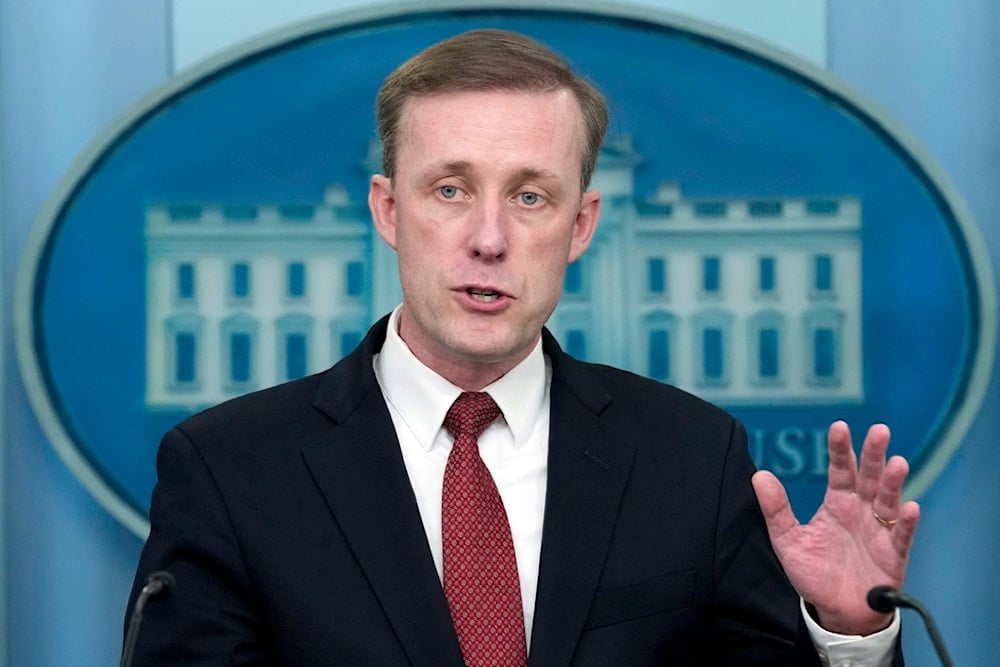Trump could lead new Iran deal after Assad's fall: Sullivan
The Joint Comprehensive Plan of Action (JCPOA), originally signed in 2015, has faced a turbulent history since the US unilaterally withdrew in 2018.
-

FILE - White House National Security Advisor Jake Sullivan speaks during the daily briefing at the White House in Washington, May 22, 2024. (AP)
In an interview with CNN's Fareed Zakaria on Sunday, National Security Advisor Jake Sullivan expressed optimism about a "genuine opportunity" for President-elect Donald Trump to play a pivotal role in brokering a new Iran nuclear deal following the fall of the Bashar al-Assad government in Syria.
However, he also warned of significant challenges ahead.
"It's a risk that I'm personally briefing the incoming team on. I was just in Israel, consulting with the Israelis on this risk," Sullivan said, adding that Iran's "conventional capability has been reduced," a claim Tehran has outwardly rejected.
In a speech on Sunday, Iranian Leader Ayatollah Sayyed Ali Khamenei rejected claims that Iran's influence in the region has diminished.
"Those who repeat that Iran has lost its proxy forces are wrong because Iran does not have proxy forces in the first place," Khamenei said, noting that Iran does not need proxy forces.
The Iranian leader added that viewing America, the Zionist entity, and their supporters as victors in the current order of things is nothing more than "delirium and empty rhetoric."
"Where was your victory? Was it in Gaza by killing more than 40 thousand innocent people, by eliminating Hamas, or by liberating the prisoners from Gaza?" he said.
JCPOA revival?
The Joint Comprehensive Plan of Action (JCPOA), originally signed in 2015, has faced a turbulent history since the US unilaterally withdrew in 2018.
Following Washington's exit and the reimposition of sanctions, Iran triggered the JCPOA's dispute resolution mechanism, leading to commitments from remaining signatories to mitigate the economic impact.
However, Iran reduced its compliance with the deal in stages after European nations failed to meet their promises.
Read more: Iran rejects E3 allegations of JCPOA non-compliance
Efforts to revive the JCPOA have been ongoing, with eight rounds of talks in Vienna involving Iran, the European Union, and other signatories, while the US participated indirectly.
Despite some progress, negotiations remain stalled due to new demands, delays, and conflicting positions from the US, leaving the future of the deal uncertain.

 2 Min Read
2 Min Read










